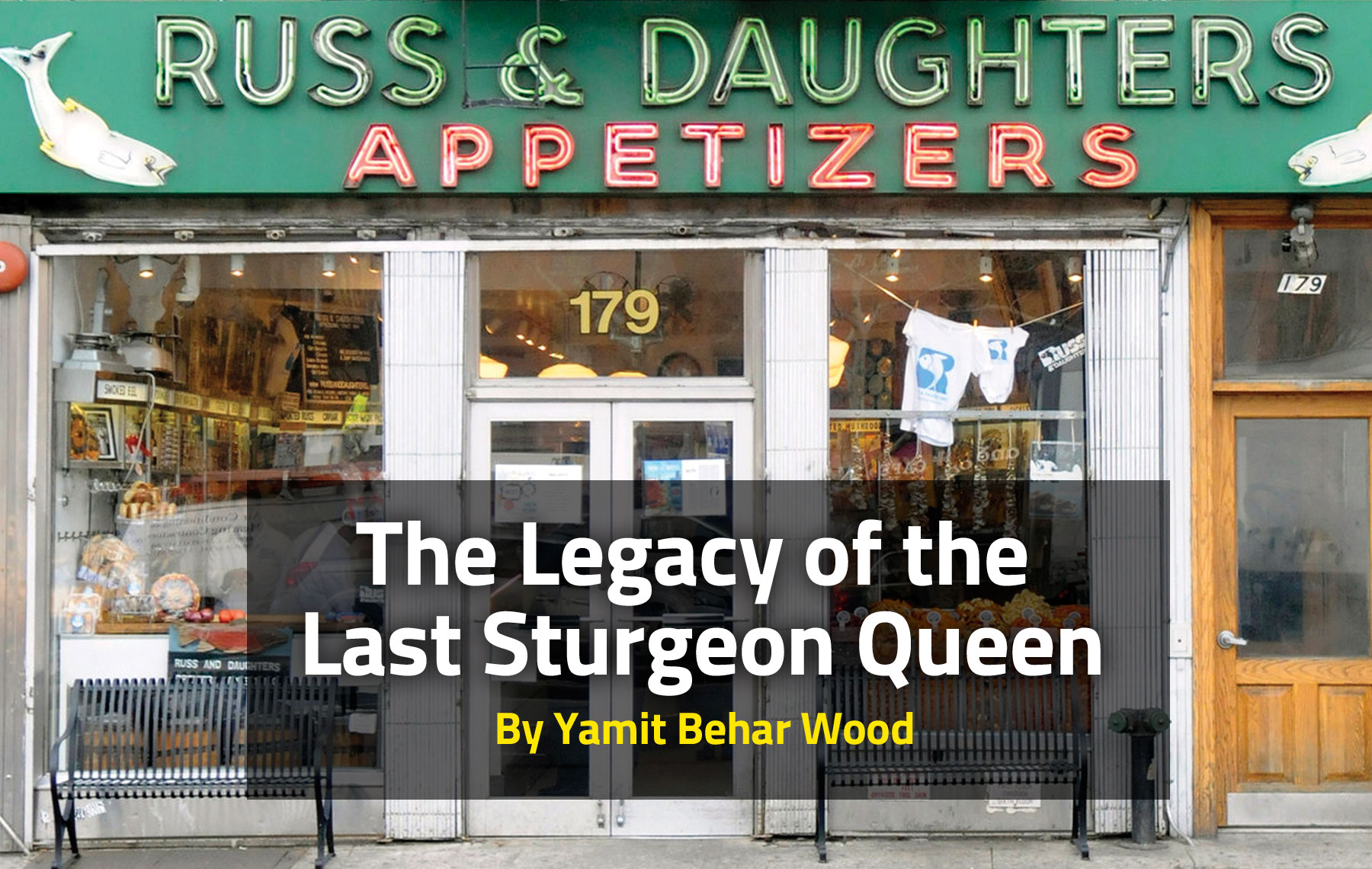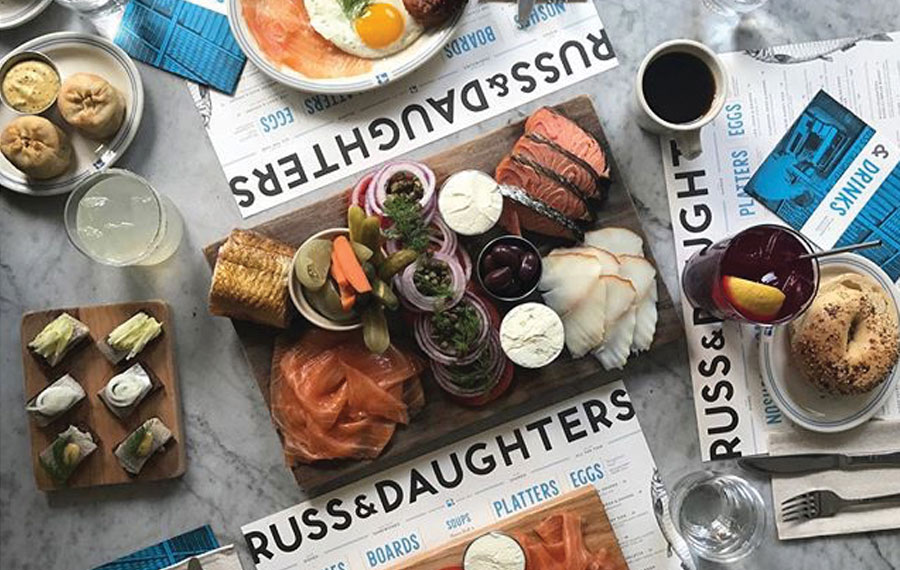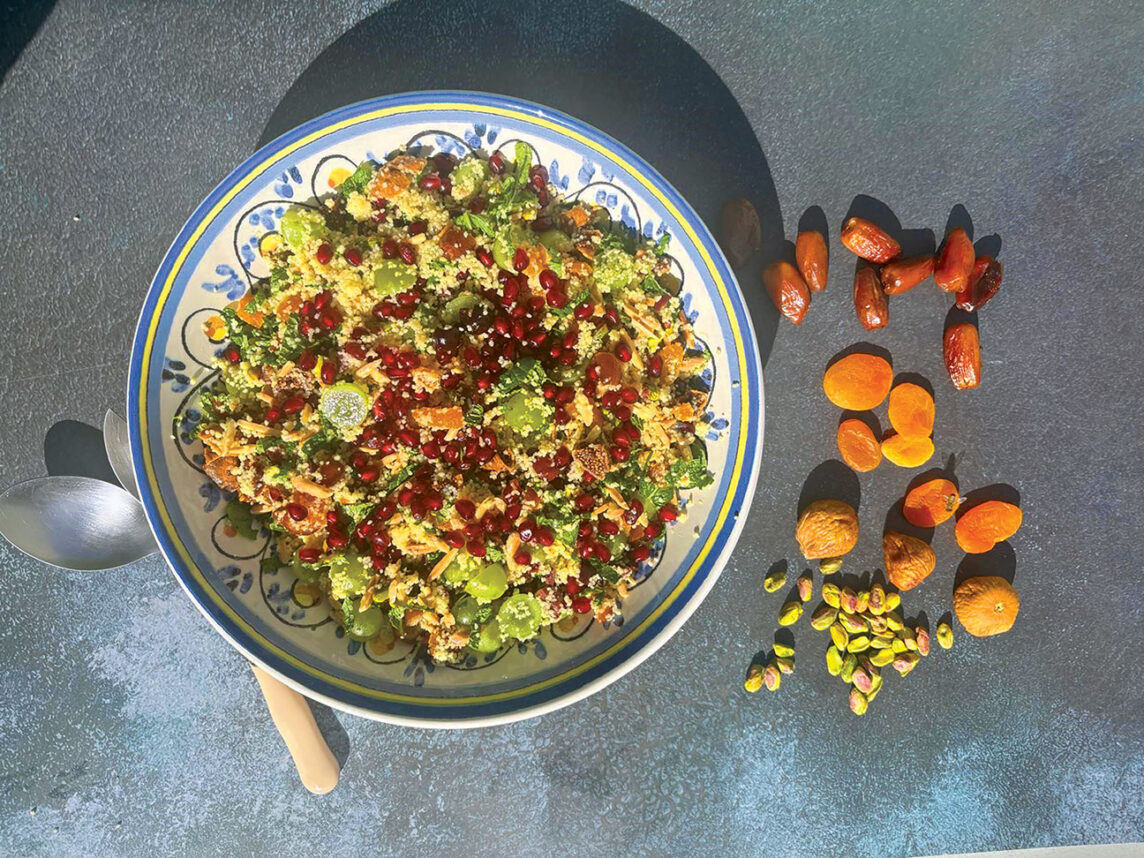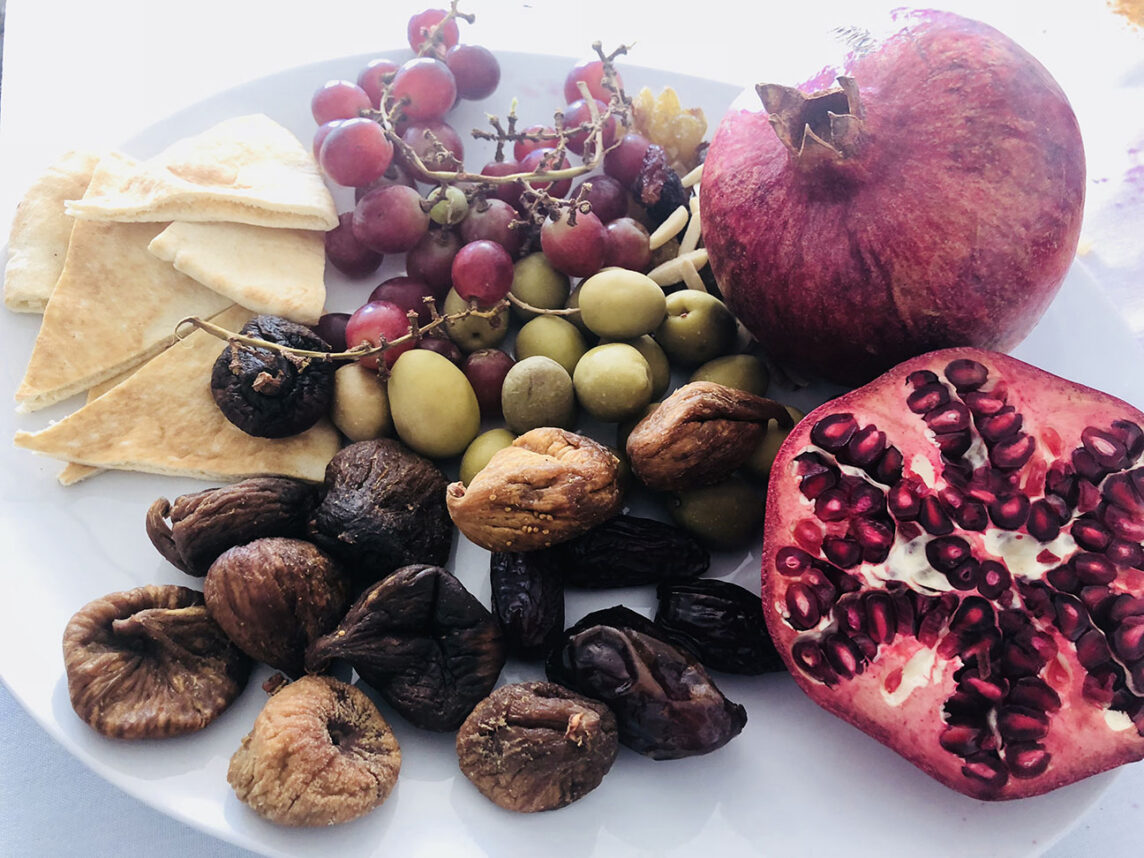
The food landscape abounds with various categories of purveyors, ranging from trendy to hipster to traditional, but few and far between those classifications lie the legends. And in the Jewish food category, there is Russ & Daughters, a name that holds so much significance in what’s known as the “appetizing” world.
Anne Russ Federman, the last living daughter of Joel Russ, founder of Russ & Daughters, died last week at age 97, but not before she was recognized for her contributions to the Jewish-American experience in the book “The Women Who Made New York” by Julie Scelfo, and lived to see two of her grandchildren become the fourth-generation champions of the namesake business she began working in when she was only 14.
When it comes to the American-Jewish experience in New York, Jewish soul food comes in the form of what’s known as “appetizing” — what their website describes as “a variety of smoked and cured fish including salmon, sable, whitefish and sturgeon as well as a salads, cream cheeses, caviar and generally food one tends to eat with bagels.”
Appetizing originated from the Jewish laws of kashrut, which dictate that meat and dairy cannot be eaten or sold together. So, two types of stores were created to cater to the Jewish population, which mostly hailed from Eastern Europe in the early 1900s: delicatessens and appetizing shops.
While delicatessens sold cured and pickled meats, shops that sold fish and dairy products were known as appetizing stores. Before the middle of the century, appetizing shops could be found in abundance in every borough of New York and in large concentration on the Lower East Side, to cater to the Eastern European Jewish immigrants who concentrated there. There in 1907, a Polish immigrant named Joel Russ started to sell what was known as schmaltz herring out of a barrel, eventually working his way up to a pushcart, then a horse and wagon, and finally a legitimate storefront business. Schmaltz herring was a predominant and cheap food back in those days, so named for the fat that came off the brined fish that could be smeared on bread and eaten as a meal in itself.
By 1920, Russ had a shop on Houston Street, in the location it sits to this day, that had already blossomed into an active fish emporium, having moved from its original location on Orchard Street. With no sons to pass down the torch to, Russ enlisted his three teenage daughters — Hattie, Ida and Anne — to work in the store.
Business flourished when customers lined up to see the young, beautiful and charming sisters masterfully slicing the salty strips of belly salmon famously described as “so thin you could read The New York Times through it.” Then, in 1935, in what was surely the most pro-feminist act of the day, Russ made his daughters full partners and changed the name of the business to Russ & Daughters, probably the first business in the United States to have “& Daughters” in its name, a move that was unheard of at the time.
“In 1935, in what was surely the most pro-feminist act of the day, Russ made his daughters full partners and changed the name of the business to Russ & Daughters.”
In 2013, Russ & Daughters became the subjects of the documentary “The Sturgeon Queens,” produced and directed by Julie Cohen (whose film “RBG,” about Supreme Court Justice Ruth Bader Ginsburg, came out this year). In the film, luminaries like Ginsburg, journalist Morley Safer and actor Maggie Gyllenhaal speak for most New Yorkers when they talk about what the store means to them. Two of the sisters, Anne and Hattie, describe their father’s hard-driven approach to the business.
Instilling the father’s love of the business in future generations was certainly not a given. The credit goes to the sisters. In the film, Anne’s son, Mark Russ Federman, talks about having a law career before coming back and taking over the family business in 1979, when the daughters and their husbands were ready to retire. Far from pressuring their children to join the company, the sisters simply let their life’s work speak for itself.
After 30 years of running the business, Mark Russ Federman’s daughter Niki and her cousin Josh Russ Tupper took over ownership in 2009, after successful careers outside the family business and even outside of the food sector. On the store’s 100th anniversary, they opened the first Russ & Daughters café in the original location of the store on Orchard Street. They computerized the ordering system, added some modern twists to the menu, began running herring pairing events, and created sandwiches and platters named after their grandmothers and their great-grandfather.

It’s estimated that 10,000 orders for items ranging from smoked fish, caviar and chopped liver to rugelach and babka are placed from the Rosh Hashanah period to the Yom Kippur break-fast. On the day before the Yom Kippur fast, early in the morning, there was a line wrapped around the block from East Houston Street all the way to Allen Street. It began at 6 a.m. and grew as the day progressed.
Witnessing the jovial banter that goes on in the line, older men and women who come to get an authentic taste of their lost youth mingling with young couples with children and hungry throngs of tourists, it’s all but impossible not to feel a certain genetic Jewish connection to this place. In all my years in New York, this was usually my last shopping stop before going home to my parents in Washington, D.C., and bringing them a small but poignant reminder of the taste of the New York of their youth, when they, too, were new immigrants. In that line is a feeling of home and tradition, cultural identity and, yes, even a sense of belonging. Imagining the fierce work ethic and pride that must have been coursing through Joel Russ’ veins in that era seems to be contagious even many decades later.
The late chef, author and TV personality Anthony Bourdain once said, “Russ & Daughters occupies that rare and tiny place on the mountaintop reserved for those who are not just the oldest and the last — but also the best.” It’s hard to fathom the struggle and commitment necessary to have created a business that remained viable and flourishing through the ups and downs of the Lower East Side. That it made it through the Great Depression and out the other side of the ’70s drug wars and the ’80s helter-skelter of crime in the neighborhood is miraculous. A business that began as a barrel full of fish pushed on a cart by a Polish immigrant in 1907, yet still holds cachet and relevance in a Starbucks-saturated and trend-driven food landscape — a full four generations later — is almost mythological.
While Manhattan is blessed to be a city that boasts establishments proclaiming their founders to be “Sturgeon King” and the “King of Sturgeon,” those three little girls whose father had the foresight to designate them as the “Queens of Sturgeon” are featured in a large street mural art project celebrating them as “Lower East Side heroines.” Indeed, not only did they successfully navigate a harsh male-dominated world of appetizing to keep their business thriving, perhaps even more extraordinary is that they raised their heirs to love and cherish it, making them the coolest rulers of them all.
Yamit Behar Wood, an Israeli-American food and travel writer, is the executive chef at the U.S. Embassy in Kampala, Uganda, and founder of the New York Kitchen Catering Co.


































